Bloomberg Technology
‘Bloomberg Technology’ Full Show (11/08/2021)
The only daily news program focused exclusively on technology, innovation and the future of business from San Francisco. ——– Like this video? Subscribe to Bloomberg Technology on YouTube: Watch the latest full episodes of “Bloomberg Technology” with Emily Chang here: Get the latest in tech from Silicon Valley and around the world here: Connect with…
Published
3 years agoon
The only daily news program focused exclusively on technology, innovation and the future of business from San Francisco.
——–
Like this video? Subscribe to Bloomberg Technology on YouTube:
Watch the latest full episodes of “Bloomberg Technology” with Emily Chang here:
Get the latest in tech from Silicon Valley and around the world here:
Connect with us on…
Twitter:
Facebook:
Instagram:
From the heart of where innovation money and power collide. In
Silicon Valley and beyond. This is Bloomberg Technology with
Emily Chang.
I’m Emily Chang San Francisco and this is Bloomberg Technology
coming up in the next hour the votes are in the Twitter votes.
That is Elon Musk’s followers have voted that the Tesla CEO
should sell 10 percent of his stake in the company worth about
twenty one billion dollars. Will he do it. We’ll discuss.
Plus another company heads to the metaverse MMD rallying after
landing Metta as a new customer. We’ll talk to a MDC Lisa Shu
about teaming up with the company formerly known as Facebook and
Cryptos New Milestone. The market for digital assets has already
quadrupled from 20 20.
But will that momentum continue. We’ll discuss later this hour.
All of that in a moment. But first let’s get a look at the
markets and U.S. stocks edging higher with the S&P notching its
longest winning streak since 2017. Bloomberg Quicktake Gupta has
the full report. Kitty tell us about the day. Well Emily a
little bit for a mediocre day. We’re talking about the index.
The S&P 500 closing a little bit higher but just barely. We can
almost call that flat the Nasdaq 100. However in the red by like
I said I’m just a little bit marginal move. And you see the New
York thing index really that big tech bit unchanged. So a lot of
this is going to be positioning of course for the CPI report on
Wednesday. But a lot of this is also simply the fact that big
tech today was split. You had Tesla Apple Amazon in the red. You
had Microsoft in some of the others in the green. And of course
when that happens you do tend to see the market play a little
bit of a tug of war. What didn’t play tug of war Emily was
cryptocurrency currencies up seven point eight percent. That’s
really where you saw the bid especially in the stock market. A
lot of the marathon digital the micro strategies all
outperforming today. But let me show you a big chart about the
about big tech in particular because a two trillion dollar club
made some news today. Alphabet almost closing. They’re hitting
two trillion dollars of market cap intraday and then closing at
one point ninety eight trillion almost nearing the likes of
Apple and Microsoft in that benchmark something to watch in the
days ahead. Maybe Alphabet will close above that. Mark let’s
just take a look at some of the other tech subsectors though
because a while though you talk a little bit kind of a flat
mediocre day from the indexes the sub indexes semiconductors and
the Golden Dragon Index which really houses those Chinese 80
yards very tech heavy. Those actually outperformed today Emily.
But let’s just get to the breaking news here. Lots of earnings
stories after the bell. For that we go to ad lib. Yeah. Straight
to Robin Hood down around 3 percent in after hours trading is
disclosed. A security breach in November 3rd. Five million
customers. Customer e-mails. Access 2 million. Customer full
names access. Crucially though no access to Social Security
numbers credit card numbers or account numbers. But clearly that
a worrying sign for Robin Hood a stock that was off in regular
trading on Monday. Emily your eyes do not deceive you. That does
literally say 30 percent on the screen. Roadblocks often surging
in after hours after reporting bookings. It’s time for sales in
the quarter up 28 percent year on year.
Basically some staying power for the online video games market
has become out of the global pandemic. Really positive for
roadblocks. You were talking about FMD in the intro. A really
big move in that stock on Monday up 10 percent its biggest gain
since July of last year to a fresh record high. As you said
they’ve won that deal for the server chip to provide that to
metal the company formerly known as Facebook making their own
little foray into the massive US. And finally I want to touch on
Tester. If you bring up that stock on Monday Tesla down four
point eight percent biggest drop since June. At one point he was
down more than 7 percent which was his biggest drop since
February. Why. I’m not going to tell you why he got so much
better to talk tonight about Emily. Back to you. All right.
Gupta at Ludlow thank you both. Where we’ve got someone right
here to tell us why. Musk of course as Ed said back with the
tweaks. Tesla CEO and largest shareholder tweeting out a poll
over the weekend asking his Twitter followers whether or not he
should sell 10 percent of his stake. They voted yes.
What does that mean.
Let’s dive into it with Bloomberg’s own Diana Hall.
So why did he do this. I think frankly that Musk is very
sensitive to the fact that he’s now the richest person on the
planet and he’s the target of people who want to get
billionaires to be taxed. And so he he wants to be seen as being
is doing good for the world. And he’s been mulling a sale of
stock for quite some time. You talked about this in the fall. So
is this something he had already planned to do. I think he’s
been planning it. I mean he. So he has stock options that are
expiring and he’s going to have to pay taxes on that. But now
he’s also talking about selling a 10 percent stake. So maybe he
sells the shares and buys them back. Maybe they’re at an all
time high. Why not take some money off the table and fund his
foundation. I mean he’s probably thinking about his legacy and
his philanthropy. And you know I think he’s been thinking about
this for a while. What does this actually mean for the tax
debate. I mean is he is he is this is there some amount of
benevolence here or is this something that he would have to do
anyway. I mean I think it depends in part on the reconciliation
bill. The last I checked taxing billionaires was not part of the
package that has. Yes. Yet to be passed by Congress. But I
imagine that he wants to do whatever he’s going to do with his
stock sale before you know to get the lowest tax rate possible.
But yeah I mean I think ultimately I mean he will pay taxes on
this sale and that could be good for taxpayers. But you know
maybe he’s dodging a bigger tax bill down the road. And what
does it mean for Tesla and Tesla shareholders. Right. Because
the more he owns right the more shareholders might believe he’s
invested in the company. Yeah. And I think you saw some split
among his his fan base because he had always said my money is
was the first in and we’ll be the last out. So the idea of him
selling is kind of causing consternation among some of the
devout. Others are like oh you know he deserves it. He’s built
this company up to be such a big thing. He should have money and
he’s not really cash rich. All of his wealth is in the stock but
he’s certainly not poor either. You know how does this sort of
we’re seeing more. He seems to be efforts on his part to at
least appear more generous with the world hunger. The offer to
provide billions of dollars to help solve world hunger. If the
U.N. could prove it. Is there any development on that. So I
think what’s interesting about Musk is that he’s the wealthiest
person in the world but he’s always said that his money is going
to go to fund Space X his Mars mission mission. He has a
foundation but the foundation makes very small grants to things
like his brother Kimball’s company. So he’s not really known for
philanthropy even though he has notions of being involved. I
mean he also pledged 50 million dollars I believe to the St.
Jude’s Hospital. He’s talking to the world to about world hunger
carbon capture. But like he hasn’t actually spent a lot of this
money yet. Right. And he certainly hasn’t committed yet. And
just because Twitter said yes doesn’t mean he’s going to do it.
Correct. Correct. And there’s been no form for. So like this is
all theoretical. I mean yes the Twitter the Twitter verse has
spoken but like until there’s a filing I won’t believe it. All
right. Bloomberg Santa. Hall maybe watching your notifications.
Thank you. Meantime McAfee has agreed to be acquired by an
investor group called by Advent International and Primera an all
cash transaction with an equity value of 12 billion dollars.
That takes the global online protection provider private. We’ll
have much more on that later this hour.
And coming up M.D. racks up a big win with Metta the company
formerly known as Facebook now in M.D. customer. CEO Lisa Su
joins us right here next. Talk about what it means just what she
thinks of the metaverse and her outlook on the chip crisis. This
is Bloomberg.
Shares of Advanced Micro Devices ending up more than 10 percent
after the company announced it won metal. Formerly known as
Facebook as a chip customer Hamdi also revealing a range of new
chips to take on rivals like India and Intel. All of this on the
heels of third quarter earnings that were very very strong.
Joining me now to talk about it all and much more Andy CEO and
President Lisa Sue. Lisa. Great to have you back with us. So
just how big a win is landing Facebook or I should say Metta as
a customer for Andy.
Hey Emily it’s great to be here with you. And I would say it was
a big day for Andy. We had you know we really talked about a
range of things today in our data center. So we talked about new
products in terms of our new products and our new cheap GP
products as well as the fact that now 10 of the largest
hyperscale ers including Metta are using AMD’s epic. So we’re
extremely excited about it. I think it’s really just goes to say
a little bit about sort of our long term focus on the data
center and really wanting to make sure that we are working and
partnering with the most important companies in the world.
This now means as you say you are working with so many of these
hyperscale hours including not just met but Microsoft and Amazon
and Google. Talk to us give us more color on what it’s taken to
win over these big customers and cut into market share of your
competitors.
Yeah. So this has been our focus over the last four or five
years has been really to build up the capabilities in the data
center. We see the data center as one of the most exciting if
not the most exciting market in semiconductors. You know there’s
this massive need for high performance computing. And each one
of these large hyperscale ers are doing such a unique and
innovative things. So we’re honored frankly to be partnered with
with all of them. I think it says a lot about the technology
that you need and sort of the multigenerational roadmap that you
need and being able to partner with the best means that you
learn how to make your roadmap even stronger going forward. Now
I do want to talk a little bit about Metta and it’s back on the
metaverse. A lot of people still don’t know what the metaverse
is just how big an opportunity do you think the metaverse will
be. And do you see. What do you see as M.D. role in it.
Yeah. So look we’re excited. If I just take a step back Emily
and talk about sort of high performance computing and you know
what we believe and what I believe is that there’s really this
mega cycle around needing more computing and so many different
applications. You know whether you’re talking about
collaboration applications or you’re talking about research
applications or you’re talking about you know just you know
analyzing massive amounts of data. And yes the metaverse is even
the next thing you know on top of it. So we believe it’s a very
large opportunity if you look at high performance computing in
its entirety. I think the metaverse is one of those areas that
that many people are talking about in terms of you know how do
you really bring together you know virtual reality and mixed
reality together with all of the collaboration that we’re doing
now. I think we have new expectations of what life is like a
post pandemic. So it’s an exciting vision. And we view it as
really an opportunity where you need high performance you know
CPR use or microprocessors and high performance graphics and GP
use and artificial intelligence and machine learning and
visualization and really bringing all of that together. And you
know we’re unique in the sense that we really do look at sort of
the end to end use cases and really work with our partners on
making that happen. So we’ve view just tremendous opportunity in
high performance computing going forward. You do have new GP you
and CPE offerings and I’m curious why we’re seeing you now.
Broaden out some of your offerings when it’s that focus and
execution that has served AMC so well.
Well you know we’re excited about the data center overall. Emily
and when you really look at all of the expansion it’s really an
area of secular growth. And as the markets get larger you see
more and more specialization. So no question our epic product
family and our general purpose data center server processors
have done extremely well. And we’re gonna continue to be very
very aggressive on that roadmap. But the fact is there are these
large use cases around high performance computing and A.I. and
those need use and we can put them together in a very efficient
way in a system. We also announced today that we’re broadening
our offerings to include a cloud focused processor line versus
let’s call it a more general purpose line. And again this is
just this expansion of computing really allowing and enabling us
to go to one invest more and to really try to tailor and partner
with what we think of our customers and partners are going to
need going forward. How do you see Genoa. Why your next design
for data center chips actually shaking up the competitive
landscape cutting into market share for folks like Intel and
users of ARM technology that are also trying to break in.
Well I think the you know the key in this market frankly is
execution you know strong execution generation after generation.
You know our current generation Mahlon processors are fantastic.
I mean we’re very very excited about the adoption. You know we
just announced our third quarter earnings and we doubled our
server processors as well as our datacenter processor sales year
on year. And that just kind of tells you a little bit about sort
of the momentum we have. General as the fourth generation
general is very very strong. It really builds on top of the
capabilities that we have with with Mahlon. We add a whole bunch
of new IO features. We expand the number of cores in the amount
of performance. And what that should mean to our customers is
they can do more in the same footprint. Datacenter folks are all
about total cost of ownership and how much can they do in a
given footprint. And so the fact that General ISE is another big
step forward we’re going to use 5 nanometer technology of it as
lot of new architectural features. We’re excited about General.
Now with all of these new products you seem to be planning for a
much bigger M.D.. Can you get the supply to match these
ambitions and help you carry them out.
Yeah. So no question. We are planning for a bigger M.D.. The
thought know if we look at our trajectory the last two years
have been tremendous growth. We’ve just guided two thousand and
twenty one to sixty five percent. You’re on your growth. You
know when we started the year sort of in January we thought it
was 37 percent. So we’ve been able to add a lot of supply as
well as there’s just very strong demand for AMG processors right
now. We are working very very closely with all of our supply
chain partners. There’s an incredible amount of work going to
ramp up overall supply chain capacity and we feel very good
about the trajectory of what we see going into 2022 and beyond.
And these are all long term partnerships anyway. So it’s really
about you know how do we plan with our customers in our supply
chain partners not just for this quarter next quarter but for
2022 2023 and beyond to make sure that we can meet all of this
incredible demand that’s out there. Still the chip shortage and
supply issues seem to be a continuing crisis for everyone else.
And I’m curious how long you think we’re going to see the ripple
effects of this. Is this something that you think will continue
to reverberate across industries for years potentially.
Yeah. You know I get asked that question a lot. I think you’ve
asked some questions of me a few times. I will tell you that I
think the environment is such that there’s a lot of capacity and
a lot of investment that’s being put online. So that’s positive.
You know like I said we saw more more growth and more capability
in towards the end of 2021 than earlier in the year. I think the
first half of twenty two is still going to be pretty tight but
we’re gonna see improvements as we go into the second half or
22. And I feel confident that the semiconductor industry is
going to respond to the challenge. And every quarter it’ll get
incrementally better going forward. It’s hard not to keep asking
because the situation seems to be continuing and keeps changing.
So I do appreciate you giving us an update every time you come
on the show. You know you did have a strong quarter great third
quarter as you look into 2020 to what’s really going to be what
are gonna be the defining trends and defining trends that will
drive AMD’s growth through the next year.
Yeah. Sure. Emily so I think as we look forward you know the
most important thing is we are in the right markets. I mean it’s
a very exciting world in this high performance computing world.
You know if we looked at the town where the total market size
just you know maybe 18 months ago we might have sized it at
about 80 billion or so. We now see that market size or that
market opportunity upwards of 100 billion. So there’s a lot of
need for computing and computing capability. And from an M.D.
standpoint I think our product portfolio is the best it’s ever
been. And it’s it’s only going to get better. I think we’re
excited. We have a whole slew of products that we’re launching
in 2022 and we’ll talk more about that over the coming months.
And you know our goal is to continue to partner with the best
the best brands in the in the industry and make sure that we’re
providing them the best solution. So I think it’s a great growth
environment for us. We’re going to continue to work hard at
satisfying all the demand out there. But I think we’re very
optimistic about about 2022. It’ll be interesting to see just
how much the metaverse proper is part of that growth. I’m
curious if you have an idea of when you think we will see this
new universe if you will really come alive especially for the
mainstream.
Yeah I think people are doing you know a lot of experimentation
in the area. Emily and you know as I said you know there are
announcements from a number of companies out there and we’ll see
things you know come come together incrementally over the next
few years. But I’d like to think of the metaverse. It’s not
going to be like one big bang that you’re going to see
everything come out. You’re going to see really a product’s
building on each other and capabilities building on each other.
And the fundamental underneath that is you need you know great
high performance processing technology which is which is what
we’re working on.
All right. AMD CEO Lisa Su always good to have you here. Thanks
so much for sharing those new products and that view of the
future with us.
OK coming up 10 cent making moves to circumvent China’s
crackdown on video games. We’ll tell you how next. And as we
head to break let’s take a look at PayPal. The company lowering
its full year guidance for revenue and earnings after its former
parent company eBay accelerated a shift away from the payments
giant. Meantime PayPal has inked a deal with Amazon to allow
Venmo wallets to be accepted on the e-commerce site. This is
Bloomberg.
A few stories we’re following Softbank CEO Masayoshi Son says
the company will buy back as much as eight point eight billion
or 1 trillion yen eight point eight billion dollars or one
trillion yen of its stock when it comes out to about fourteen
point six percent. This after a decline in the value of its
portfolio companies led to a record loss in its Vision Fund
Investment unit. The company’s shares have slid more than 40
percent from their peak. In mid-March Tencent pulled off a pair
of successes with its League of Legends franchise. Not only did
it hold a massive EA Sports tournament that drew more viewers
than ever before but it also premiered Arcane on Netflix
garnering 130 million views in China just a few hours. Tencent
is trying to cope with China’s crackdown on the video games
industry after saying kids could only play about three hours a
week which caused stock prices to drop for Tencent and others
across the gaming world. And TV Sheeba is considering splitting
up the company as it looks for ways to strengthen shareholder
value. The Japanese conglomerate is reportedly going to divide
itself into three companies to focus on infrastructure devices
and semiconductor memory is earliest 2023. Toshiba has been in
turmoil with its shareholders over the best direction for the
company and whether it should pursue going private.
Coming up first Facebook then Microsoft making big bets on the
metaverse. We’re gonna be with the pillion co managing partner
former head of Amazon Studios Matthew Ball. His vision for just
how big the metaverse will be and who will own it. That’s next.
This is Bloomberg.
People.
Welcome back to Bloomberg Technology Emily Chang in San
Francisco.
Let’s head over to the markets where our at Ludlow has news of
that McAfee deal and what it means. Take it away. A little blast
from the past but it’s like something we rely on each day you
know antivirus software security software. Remember my parents
Tony McAfee on my desktop when I was a kid. Big deal a buyout
essentially from a consortium of private equity names valuing
the company at 14 billion dollars including its debt. It’s bring
out some of the details of this deal. The consortium includes
big names you have can Canada’s pension plan involves Abu
Dhabi’s investment authority cross point. They can offer twenty
six dollars a share which is a pretty hefty premium. And when
McAfee closed on Friday before the deal was announced on Monday
they can have 45 days to consider it.
They can look elsewhere. But this is like really good history
lesson when you look into McAfee remember. Founded in 1987 by
the entrepreneur John McAfee. It was later sold to Intel in
2010. Intel then spun it off to TPP in 2016. And ultimately the
company ends up going public in October 2020 just over a year
ago. And you can see how it’s performed over the last 12 months
or so. Pretty reasonable gains around 26 percent full year 2020
2021. So it’s done pretty well. But now we’re coming full circle
and we take it private again. Just shows the appetite is still
out there for software companies. Emily. All right Ed thanks
much. Meantime it’s still all about the metaverse but should it
be. The optimists believe how you learn work and get entertained
will all change dramatically in this new world all while
creating new opportunities for advertisers investors and
creators. For more I want to bring in Matthew Ball a managing
partner at Appealing CO. And former head of strategy at Amazon
Studios who was talking about the opportunity in the metaverse
long before Facebook changed its name. So Matthew so much has
changed in the last couple of weeks. You’ve got a new name for
Facebook. You know obviously making this big bad. You’ve got
Microsoft making its big bet on the metaverse. Do you see this
as a world where you know just one or companies will one or two
companies will own it or is it going to be much bigger than
that.
It’s going to be so much larger than that. I mean we can look at
the Internet as an example. The digital economy is assumed to be
roughly 18 to 20 percent of the world economy at eighty seven
trillion dollars. The truth of the matter is the big five tech
companies historically considered gaffe though of course
Facebook has changed. Its name was only 10 percent of that
digital economy. It dependent on myriad different developers
semiconductor compute networking and other infrastructure and
optimization companies. The metaverse will be similar.
Can Facebook though build a competitive platform that younger
users want to join and be part of. Can they get beyond these
reputational issues and trust issues.
Can they certainly. We’re looking at a company that is spending
perhaps more on this area than anyone else on earth has a
founder in control with extraordinary conviction and three
billion monthly active users two billion daily active users.
It’s very difficult to say that they can’t solve that sort of
problem but that doesn’t mean it’s going to be easy. In
particular Facebook has a bad reputation that spans roughly a
decade with developers. Ultimately developers are going to build
the metaverse. Developers are going to be required to attract
users. And that requires a skill set that Facebook historically
has not thrived in.
Well now you see Facebook and Microsoft and even Amazon all of
these big tech companies talking about the metaverse. Is this
just going to be a place where big tech companies just get
bigger or are there going to be upstarts and new players that
can sort of take on the the. The companies that own the Internet
right now.
Conventional wisdom would suggest that we’re going to see some
of today’s leaders thrive in the next generation Internet or the
metaverse. But in particular we’ll see new companies come to the
forefront. Consensus was that AT&T and AOL with lead in the
Internet era that Microsoft’s advantages would endure. And in
fact none of that happened. When we take a look at the current
state of the metaverse some of the thriving companies today have
some 50 billion dollar market caps in a year and a half ago were
sub 5 epic games unity roadblocks which absolutely blew it out
of the park. Today in earnings those companies have a lot of
headroom in front of them and they have many different
capabilities that today’s tech giants do not. Here’s a question
that just came in over IAB. Are we going to be talking about
multiple medal verses in a few years or is there just one.
It’s a bit of a taxonomy question. Most people believe that the
answer is that the metaverse is the definite article. Just like
we don’t say there are multiple Internets there’s no Facebook
Internet Google Internet. There is the Internet. That seems to
be the most likely vision of the future for the metaverse which
like the Internet is premised upon interoperability. But to some
extent that may just come down to how language is used. If we
adopt a metaverse as a platform specific definition then we’ll
end up with multiple metal verses. It’s not really a question of
verbiage. Meantime your Metaverse ETF has been on fire and I’m
sure that some of this news has helped you talk to us about the
future where this is going. As a bet for investors.
Sure will Jensen Wang the founder and CEO of Video which of
course popped more than one hundred and fifty billion in market
cap Friday and Monday believes that the metaverse economy will
exceed that of the physical world again. Eighty seven trillion.
Even if you have more modest expectations precedent from the
digital economy the Internet mobile Internet suggests that this
is a 10 to 30 trillion dollar opportunity that will manifest in
a decade or a decade and a half. Our belief is that value will
be widely distributed across the semi’s that computes the
payment companies virtual platforms and other infrastructure
providers. Our ETF is designed to provide a diversified
portfolio of exposure to those opportunities and we’re delighted
that investors have been so excited. We announced today that
over two hundred and fifty million in a whim has been a mass
since June 30th and today we saw another three and a half
million shares trade a total of 50 million dollars in value.
Enthusiasm for the subject is only continuing to grow. Meantime
I have to ask you about roadblocks. I mean they had this 72 hour
long outage where their entire universe goes off line. Then they
report these strong results. What does that tell you.
It tells me that this is a true secular and most importantly
generational shift. If you go back to 2008 Facebook had 300
million and they use today roadblocks as about two hundred and
ten million and they use forty seven million D.A. use. That
number is up 35 percent year over year against very challenging
mid pandemic comps. And despite that outage we see significant
growth I believe as do many others that we’re heading towards a
future in which hundreds of millions if billions of people
around the world participate in these virtual worlds. And as a
result it doesn’t matter if it’s one company one outage a
quarter in which kids are going more outside than ever or
returning to work. This is a trend that is going to stay.
Netflix games some movement on that over the last week as well.
How optimistic are you and who. Who does this threaten.
Well the truth of the matter is Netflix is an incredibly high
performing company that takes a very long time horizon to
change. They launch their streaming platform in 2007 they launch
their originals banner in 2009 commissioned their first series
in 2011 aired it in 2013 and it wasn’t until 2017 or 2018 that
most of their spend was on originals. It’s very clear that Reed
Hastings knows how to execute knows how to build new technical
capabilities and knows how to be judicious in his investments
and his expansions. That plus the fact that gaming is an ever
changing category. We’re on the cusp of a R VR. Other mixed
reality environments tells me that they have the opportunity to
thrive in this category and they’ve committed themselves to
achieving that over some time horizon. All right Matthew Vol a
co managing partner. Thanks for giving us a glimpse of the
future here. Always appreciate you stopping by. Coming up the
crypto world has hit a three trillion dollar market cap as a
theorem. And Bitcoin gained further traction just over the
weekend either hitting all time highs just Monday morning.
Looking at the rally and how digital currency is playing a role
in the larger creator economy. That’s next. This is Bloomberg.
The crypto market has been on a tear most recently hitting a
three trillion dollar market cap. Either a bitcoin of both games
sending the value of the crypto universe quadrupling from its 20
20 year on value. Excitement isn’t just around the coins
themselves but of course the overall growth of decentralized
finance and NAFTA and what this holds for the future of the
creator economy. Legion Variant Fund co-founder general partner
joins us now. Lee you recently launched a one hundred and ten
million dollar new fund for crypto startups. What will you back
and how do you make sure you’re buying into the reality and not
the hype.
Yeah. So first of all we’re backing the thesis of the ownership
economy variant is very much focused on this particular thesis
that all next generation Internet platforms are going to be
built operated and owned by their users. And we think that
destroying ownership widely among one’s user base creates really
powerful incentive alignment that is going to allow networks to
grow much bigger faster than they could have under the
centralized model of building platforms. And we think that
crypto tokens uniquely and powerfully enables that by allowing
value and ownership to be distributed much much more widely
among a larger base of participants. This already exists in
small scale and Silicon Valley in the form of stock option
grants to employees. But if we think of all of the large
platforms that have been built over the last decade in the
creator economy or the gig economy a lot of users have obviously
been left out of that ownership equation. And so our thesis as a
firm is really to invest in those next generation platforms that
are going to distribute ownership over to their participants and
create much larger networks than what were previously possible.
So take us three five or I don’t know maybe it’s 10 years out.
How do how is this creator economy different than the creator
economy today that is owned by let’s say the Instagram’s and
tech stocks and YouTube’s of the world.
Yeah. So I think we’re at a really interesting moment in the
evolution of the creator economy. The creator economy has
existed for a really long time really ever since the birth of
user generated content platforms. There have been creators on
the Internet. I think what’s really new and different right now
is that a lot of those creators are seeing themselves as
entrepreneurs and small business owners and trying to carve out
a space for themselves online and monetize the attention that
they have from their audience in different ways by offering
different types of products. But today that really is existing
on the terms of a few very centralized dominant social media
platforms. Creators are not really in control of their content
their data their end user relationships how they actually
monetize. And so my hope is going forward and I think what is
enabled by crypto is a creator economy in which creators are
really able to be in control of their own destinies where
they’re able to set the terms of how they monetize how they own
their content. They’re going to be able to hopefully be able to
take their data with them and not be beholden to any one
centralized platform. And I think that’s really exist. That’s
really exciting and unlocks so many new possibilities for
creators. And furthermore I think in that world it’s not just
about the creator economy. It’s actually about the community
economy where creators can allow their fans to participate in
the upside of their careers and in that world. The lines between
who is a creator versus who’s a fan starts to blur and everyone
is able to share in their success and be very aligned towards
the success of the community. You’ve been really vocal about the
rise of FTSE topping 13 billion dollars in just the first three
quarters of this year. How do you expect that to shake out. Like
what does it look like next year. Yeah. In general we think that
F T’s are a really broad new type of digital content and I think
they’re going to encompass a lot of different types of assets on
the Internet.
Essentially everything around us in the physical world is like a
non-functional asset and I think we’re going to see that play
out in the digital world as well right now. And FTSE and all of
the transaction balling around them is really around FTSE as
still digital art and collectibles and people purchasing high
value collectibles. But I think in the future you’ll see a lot
more use cases for adoptees potentially in gaming or as access
to special experiences.
And so we’re really excited to see all those new use cases play
out in the future.
What’s your take on the recent rally. Does it keep going up.
Does it matter.
Yeah. So it’s definitely really exciting to see as just a
participant in the ecosystem but at the end of the day we are
running a long term venture firm and we take a very long view on
all of our investments. We’re not day traders. We really are
investing at the very earliest stages of these companies
existences. And we are really therefore kind of immune to the
ups and downs in the market. And don’t pay all that much
attention to it. I think the most exciting projects are going to
take multiple years or decades to play out. And we really aim to
be the long term partners to those builders.
All right Legion Variant Fund co-founder and general partner.
Thank you so much for joining us giving us a view of what’s
ahead. Coming up it is merger Monday and we’re highlighting one
of the most recognizable names in cybersecurity. That’s McAfee.
Details on the 14 billion dollar acquisition coming up. And
Marvel’s new squad of superheroes secured the top spot at the
U.S. box office this weekend. It turtles taking in 71 million
dollars in ticket sales. However that was less than estimates.
The movie is about a diverse team of superheroes that have
secretly lived on Earth for thousands of years. Directed by
Academy Award winner Chloe Zhao and stars Salma Hayek and
Angelina Jolie. This is Bloomberg.
All right. Let’s take a quick look at some of the details
emerging from the AMC earnings call underway right now AMC is
exploring if it’s possible to create its own cryptocurrency.
Heard that right. AMC also saying it’s in conversations about NF
TS related to major film titles though these conversations are
very preliminary at this time. Obviously we were just talking
about how big the market for NFTE has become in just the last
three quarters. We’ll bring you more details as we have them.
We’re soliciting into that. Meantime welcome next door. The
social network that connects neighbors began trading Monday on
the New York Stock Exchange under the ticker kind after merging
with a special purpose acquisition company Khosla Ventures
acquisition. Shares of next door surging 40 percent in the first
hour of trading and ending the day higher. Next door CEO Sara
Fryer says her focus is on the long run and not the stock price.
Next door equals neighborhood. We believe we have a global
opportunity on our hands. Of course we’re doing it for the right
reasons. We’re all about purpose and about making it a kinder
world. But we also know we have a great business on our hands. A
lot of data that allows us to do an ad sponsored model. And
we’re excited about where the business is going from here. And
obviously a part of this process has been getting a lot of
capital into the business and about 700 million that you’re
going to be able to deploy. Talk to us about where you’re going
to spend and what is going to be the sort of first order of
business. Yeah. So obviously it was a fundraising opportunity
because we wanted to bolster the balance sheet where we’re going
with that investment. Number one is to continue to build out for
growth and engagement more neighbors coming to the platform. And
as they come to the platform how do we engage them more. That
involves ongoing investment in areas like data science machine
learning. Course when you’ve a lot of data you want to make sure
that neighbors are getting the best possible experience. Second
is our ad platform. And of course what we’re building for small
local businesses. So that is a big area of investment. And then
finally international. Today we’re in 11 countries. Two hundred
eighty thousand neighborhoods. But we know we can go global. One
thing is obviously happening right now in this sort of social
media space generally. Is this move towards social commerce
slightly self brag here. But obviously we brought this paper our
Pinterest story a few weeks ago. I wonder how a company like
Next Door looks to play into that and whether it sees itself as
a sort of an acquirer or a potential target for someone else. So
on the social commerce front. I mean we have a really high
intent audience. When people come they come to get something
done usually locally and they stick around. Amount makes for a
great audience. When you start thinking about things like social
commerce for us today it’s a lot more about things like
services. So people come because they want to find the local
plumber or maybe a contractor maybe it’s a babysitter and they
tend to convert very fast. So we do well for advertisers top of
the funnel brand and then bottom of the funnel direct response.
But over time we absolutely see a way to embrace even more where
social commerce is going. I came from a payment platform so it’s
of interest to me. And I think next year is a really valuable
site for all of this. As you say you came from square. You were
the CFO there. I’m going to almost take you back to Ed’s first
question. I spoke with the stock today absolutely breathtaking.
And I’m wondering kind of how much of a role you’re playing in
that clearly a huge one but your history is well-known to Wall
Street. They know and like you it seems. How big a how big an
impact do you think that is half having. And is that the kind of
the lesson learned here that if you’ve got that kind of
management team in place Spanx still work. You know in the end
it’s a fundraising opportunity. So you have to decide if the
management team A do you need the proceeds. And if you raise
them can you invest them in an hour away positive way. And we
absolutely felt that the way we chose to go public in the end we
wanted to optimize for what was out there in the market. We find
a great partner and Khosla Ventures the note and I had worked
together at Square for over seven years. I trusted him. And I
know that Vanguard brings a lot of really good long term
strategy alongside being a great recruiter. And now it’s about
execution. I think what the market loves is the business that
we’ve built to date but they also understand the opportunity
that’s ahead of us. That’s what got me excited. Of course in the
end we don’t look at stocks. Right. Stocks are just one day
actions. This is all about the long run. In the end the market
will be a weighing machine. It will trade to fundamentals. And
we need to keep making sure we’re building a great business to
go to keep building those fundamentals.
Next door CEO Sarah Fry there. Now to a Bloomberg scoop McAfee
going private again. A large investor group looking at a 14
billion dollar deal for the cybersecurity company. For more on
this I’m joined by Bloomberg’s Liana Baker who leads our deals
team from New York. So Eliana why is McAfee thinking about going
private now again. So it’s sort of the gift that keeps on giving
for bankers. This company has now gone public twice and been
taken private twice. But what I’m hearing is that since the IPO
last year the company hadn’t really been valued for being more
than an antivirus player. So maybe in the private markets it
will kind of get that attention and care it needs and a better
valuation.
So talk to us about the history because I think that certainly
adds to the story of why this is significant. What the company
would say also is that John McAfee who was a well-known story
isn’t involved in the company anymore but definitely a huge deal
making history here. Intel actually acquired the company in
2010. And since then it had been you know carving out parts of
it bringing in private equity in the latest iteration was the
IPO. Last year the IPO price was 20 dollars and the company is
now going private for twenty six dollars. So you kind of get the
idea that maybe the public markets wasn’t the most welcoming
home for McAfee. There’s been so much tech deal making this
year. It’s kind of now part of this trend. Private equity firms
are looking for targets and this kind of fit the bill.
It’s been a busy year for tech dealmaking.
What else can we expect. Well there aren’t many cybersecurity
targets left. NAMM LifeLock is one that’s public and they did a
big deal with Avast earlier this year and it’s been just a
banner year for tech deals. I’m trying to figure out what could
be next.
Although at 14 billion you know this does kind of take up a lot
of that financing in the market. There’s a really big equity
check here. But we’re hearing that the market could handle a lot
more deals. We could be headed for 5 trillion and global MSA
volumes this year.
So really the sky’s the limit for dealmaking whether it’s
private equity firms or strategic with deep pockets. All right.
Well we’ll be watching for more of your Bloomberg Markets then
Bloomberg Markets on a. Baker thank you for stopping by. And
that does it for this edition of Bloomberg Technology. Great
show.
Coming up tomorrow we’re gonna be joined by Blue Apron CEO Linda
Findley as well as often Lou Rockey the CEO of the health tech
company Color. I’m Emily Chang in San Francisco. This is
Bloomberg.
You may like
-


The gitamini is a cargo-carrying robot that follows you around | Piaggio Fast Forward | TechCrunch
-


Toyota’s humanoid robot makes longest ever basketball shot | Guinness World Records | TechCrunch
-


Call ChatGPT with your landline via a toll-free telephone number | OpenAI | TechCrunch
-


How can #Trump really secure the Southern border? | Elon, inc. #podcast #shorts
-


Google DeepMind’s Project Astra AR glasses to launch some day, but not today | TechCrunch
-


Battle of the Wireless Mics: DJI vs. Rode vs. Hollyland
6 Comments
Leave a Reply
Cancel reply
Leave a Reply
Bloomberg Technology
Tech Leaders Approach Trump, Intel Seeks Altera Buyers | Bloomberg Technology
Bloomberg’s Caroline Hyde breaks down how President-elect Donald Trump and Elon Musk wield their political power as the government works to avoid shutting down. Plus, the Big Tech leader merry-go-round at Mar-a-Lago continues with Jeff Bezos the latest to try and influence Trump’s policies and decisions. And, private equity firms are competing for Intel’s programmable…
Published
2 days agoon
December 20, 2024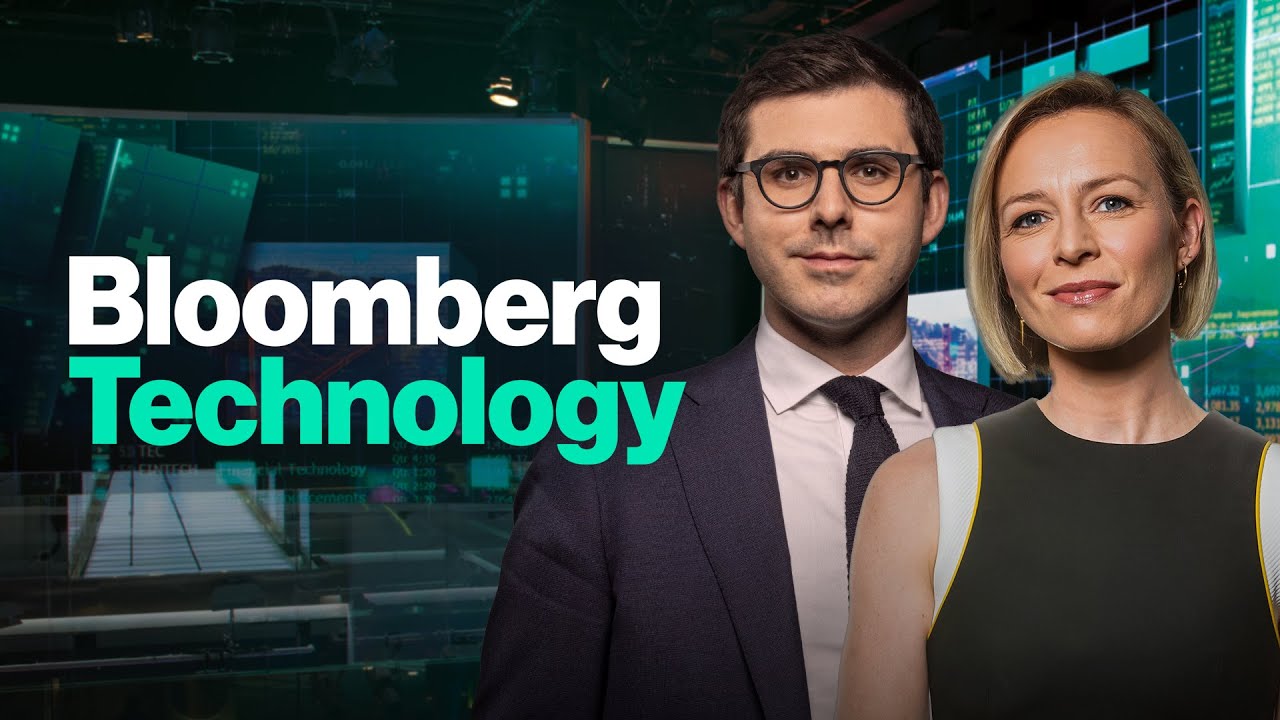
Bloomberg’s Caroline Hyde breaks down how President-elect Donald Trump and Elon Musk wield their political power as the government works to avoid shutting down. Plus, the Big Tech leader merry-go-round at Mar-a-Lago continues with Jeff Bezos the latest to try and influence Trump’s policies and decisions. And, private equity firms are competing for Intel’s programmable chip arm Altera.
——–
“Bloomberg Technology” is our daily news program focused exclusively on technology, innovation and the future of business hosted by Ed Ludlow from San Francisco and Caroline Hyde in New York.
Like this video? Subscribe and turn on the notifications for Bloomberg Technology on YouTube:
Watch the latest full episodes of “Bloomberg Technology” with Caroline Hyde and Ed Ludlow here:
Get the latest in tech from Silicon Valley and around the world here:
Follow Ed Ludlow on Twitter here:
Follow Caroline Hyde on Twitter here:
Connect with us on…
Twitter:
Facebook:
Instagram:
Bloomberg Technology
The Rise of Agentic AI
Creatio CEO and Founder Katherine Kostereva joins Caroline Hyde to discuss the rise of AI agents taking front-line interactions from customer service to sales, and to give her outlook for the space in 2025. She speaks on “Bloomberg Technology.” ——– Like this video? Subscribe to Bloomberg Technology on YouTube: Watch the latest full episodes…
Published
2 days agoon
December 20, 2024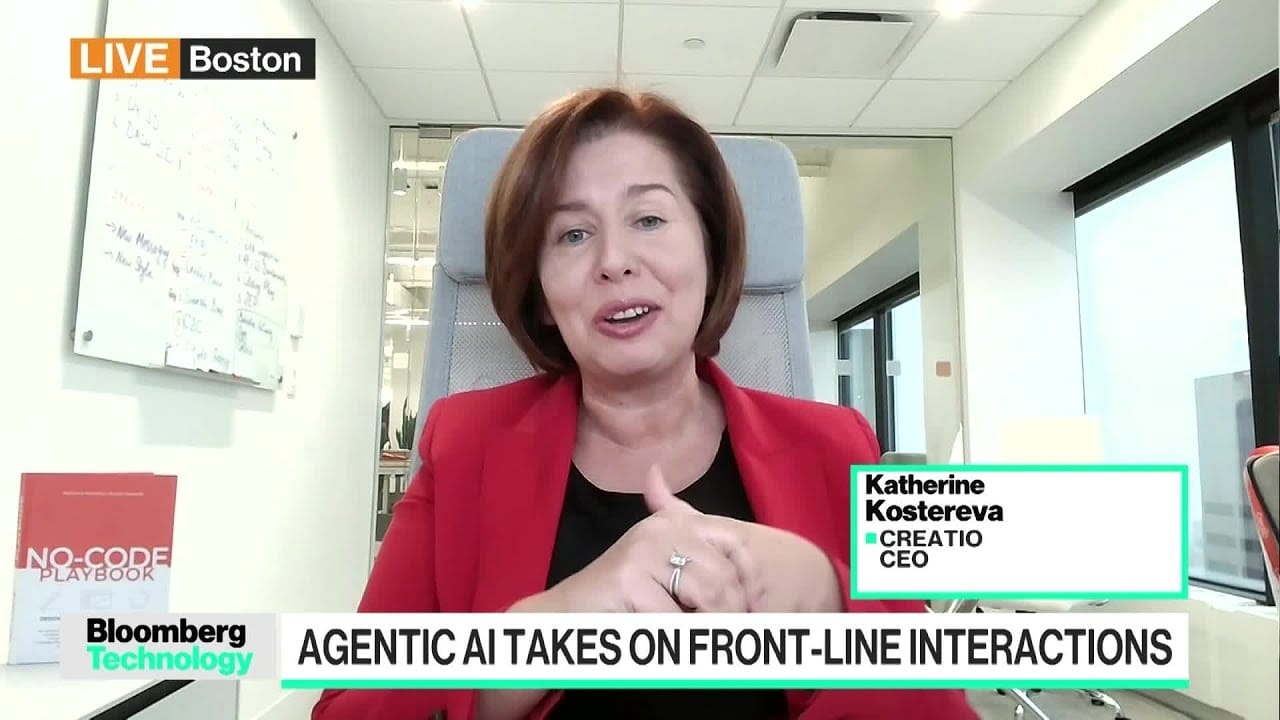
Creatio CEO and Founder Katherine Kostereva joins Caroline Hyde to discuss the rise of AI agents taking front-line interactions from customer service to sales, and to give her outlook for the space in 2025. She speaks on “Bloomberg Technology.”
——–
Like this video? Subscribe to Bloomberg Technology on YouTube:
Watch the latest full episodes of “Bloomberg Technology” with Caroline Hyde and Ed Ludlow here:
Get the latest in tech from Silicon Valley and around the world here:
Connect with us on…
X:
Facebook:
Instagram:
Follow Ed Ludlow on X here:
Follow Caroline Hyde on X here:
Listen to the daily Bloomberg Technology podcast here:
More from Bloomberg Business
Connect with us on…
X:
Facebook:
Instagram:
LinkedIn:
TikTok:
Bloomberg Technology
Bitcoin Slumps: Trump Euphoria Gives Way to Fed Wariness
Bitwise Asset Management CIO Matt Hougan tells Caroline Hyde why he believes the latest weakness in crypto and Bitcoin over the last few days is a “healthy pullback” which does not take away from the asset class’s overall great run this year. He speaks on “Bloomberg Technology.” ——– Like this video? Subscribe to Bloomberg Technology on…
Published
2 days agoon
December 20, 2024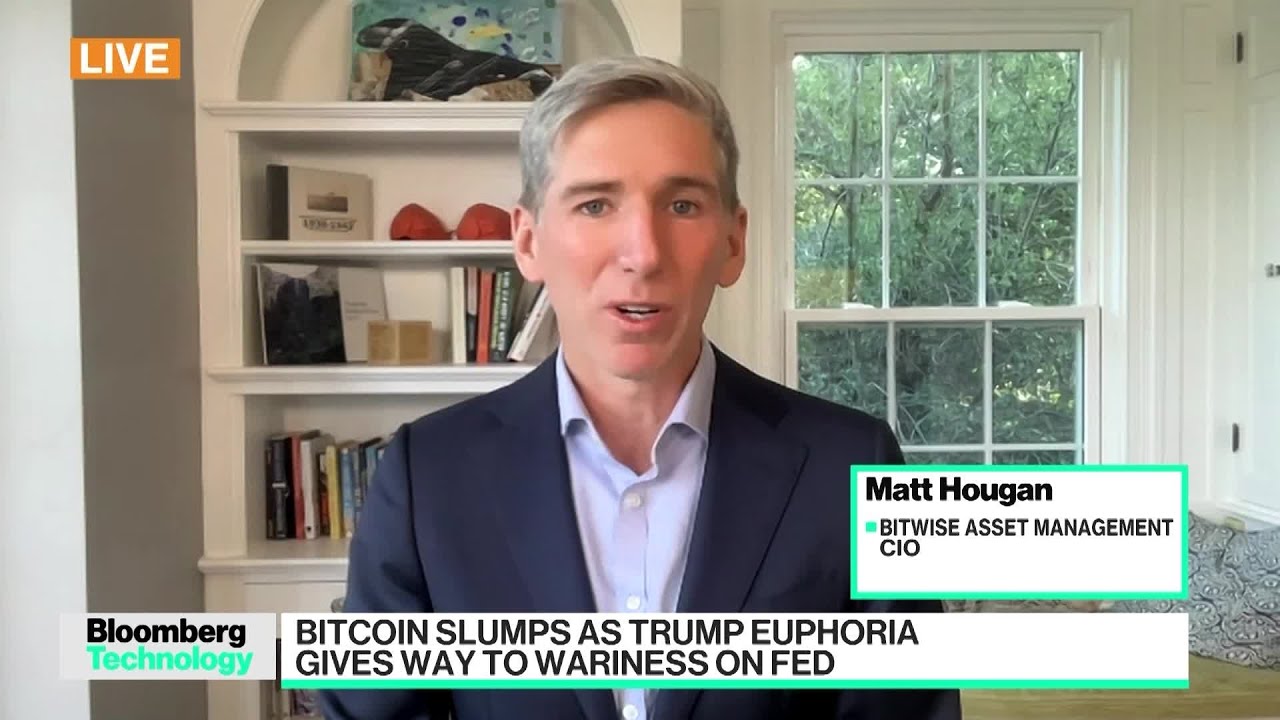
Bitwise Asset Management CIO Matt Hougan tells Caroline Hyde why he believes the latest weakness in crypto and Bitcoin over the last few days is a “healthy pullback” which does not take away from the asset class’s overall great run this year. He speaks on “Bloomberg Technology.”
——–
Like this video? Subscribe to Bloomberg Technology on YouTube:
Watch the latest full episodes of “Bloomberg Technology” with Caroline Hyde and Ed Ludlow here:
Get the latest in tech from Silicon Valley and around the world here:
Connect with us on…
X:
Facebook:
Instagram:
Follow Ed Ludlow on X here:
Follow Caroline Hyde on X here:
Listen to the daily Bloomberg Technology podcast here:
More from Bloomberg Business
Connect with us on…
X:
Facebook:
Instagram:
LinkedIn:
TikTok:

OpenAI’s Sora AI Video Generator First Look

Break the Bad News Bubble (Part 2) | Angus Hervey | TED

Tech Leaders Approach Trump, Intel Seeks Altera Buyers | Bloomberg Technology
Trending
-
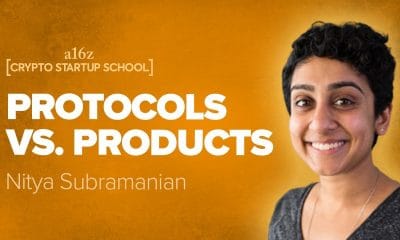
 Science & Technology5 years ago
Science & Technology5 years agoNitya Subramanian: Products and Protocol
-

 CNET5 years ago
CNET5 years agoWays you can help Black Lives Matter movement (links, orgs, and more) 👈🏽
-

 People & Blogs3 years ago
People & Blogs3 years agoSleep Expert Answers Questions From Twitter 💤 | Tech Support | WIRED
-

 Wired6 years ago
Wired6 years agoHow This Guy Became a World Champion Boomerang Thrower | WIRED
-

 Wired6 years ago
Wired6 years agoNeuroscientist Explains ASMR’s Effects on the Brain & The Body | WIRED
-

 Wired6 years ago
Wired6 years agoWhy It’s Almost Impossible to Solve a Rubik’s Cube in Under 3 Seconds | WIRED
-

 Wired6 years ago
Wired6 years agoFormer FBI Agent Explains How to Read Body Language | Tradecraft | WIRED
-
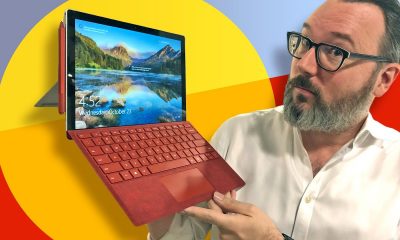
 CNET5 years ago
CNET5 years agoSurface Pro 7 review: Hello, old friend 🧙

박한우교수TV- 빅로컬빅펄스
November 9, 2021 at 1:09 am
Metaverse indeed
GGW4MIKE XX
November 9, 2021 at 1:09 am
MMAT (Meta Materials) to the moon! Let’s go!
Jacob Hassell
November 9, 2021 at 1:22 am
MMAT is about to explode! Nice!
Sumio Kuge
November 9, 2021 at 1:25 am
I appreciate the comeback of Full Show.
Bimonte
November 9, 2021 at 1:25 am
I was missing the full show!!!!!
mvpeast
November 9, 2021 at 1:30 am
$MMAT Meta go beyond!